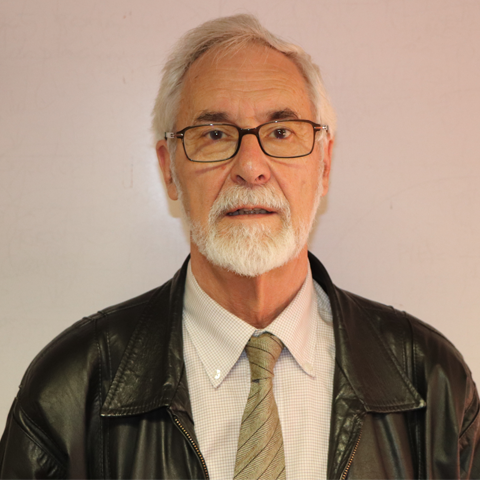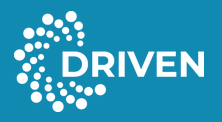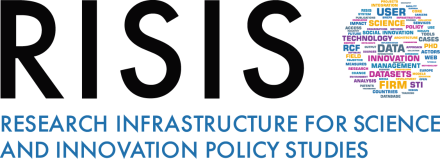De resultados heroicos, a As Neves y Serrat, dando "Gracias a la vida"
Capacidades de Innovación Territorial y de Organización

Las crecientes disparidades territoriales son el resultado del bajo potencial de innovación en las regiones periféricas, y las carencias en las empresas localizadas en las mismas. INGENIO contribuye a el debate de estos problemas, para abordar situaciones como el aumento de la desigualdad y la disminución de los ingresos entre una gran parte de la población.
-
 Míriam Acebillo-Baqué
Míriam Acebillo-Baqué
-
 José David Barberá Tomás
José David Barberá Tomás
-
 Mª del Mar Calvet Nogués
Investigadora Predoctoral
Mª del Mar Calvet Nogués
Investigadora Predoctoral
-
 Elena Castro Martínez
Científica titular
Elena Castro Martínez
Científica titular
-
 Inanna Catalá Miguel
Inanna Catalá Miguel
-
 Cristina Chaminade
Profesora de Investigación - CSIC/INGENIO
Cristina Chaminade
Profesora de Investigación - CSIC/INGENIO
-
 Daniel Cuesta Delgado
Técnico investigación M3
Daniel Cuesta Delgado
Técnico investigación M3
-
 Pablo D'Este
Pablo D'Este
-
 Ignacio Fernández de Lucio
Ignacio Fernández de Lucio
-
 Clara Furió Vico
Estudiante predoctoral
Clara Furió Vico
Estudiante predoctoral
-
 Cristina Galiana Carballo
Personal de investigación PhD doctoranda
Cristina Galiana Carballo
Personal de investigación PhD doctoranda
-
 Gretel Gutiérrez Calderón
Comisión PhD - PhDays
Gretel Gutiérrez Calderón
Comisión PhD - PhDays
-
 Fernando Jiménez Sáez
Fernando Jiménez Sáez
-
 Raquel Luján Soto
Investigadora Postdoctoral - Juan de la Cierva
Raquel Luján Soto
Investigadora Postdoctoral - Juan de la Cierva
-
 Pedro Marques
Pedro Marques
-
 Enrique Meseguer Castillo
Candidato doctoral
Enrique Meseguer Castillo
Candidato doctoral
-
 Jordi Peris Blanes
Profesor Titular de Universidad
Jordi Peris Blanes
Profesor Titular de Universidad
-
 Rocío Poveda Bautista
Rocío Poveda Bautista
-
 Marta Guadalupe Rivera Ferre
Profesora de Investigación
Marta Guadalupe Rivera Ferre
Profesora de Investigación
-
 Ingrith Dayana Rodríguez Gutiérrez
Ingrith Dayana Rodríguez Gutiérrez
-
 Sergio Segura Calero
Investigador Juan de la Cierva
Sergio Segura Calero
Investigador Juan de la Cierva
-
 Paulina Terrazas Valdés
Paulina Terrazas Valdés
-
 Richard Woolley
Richard Woolley
Science Meets Regions Comunitat Valenciana 2023 está promovido por Ciencia en el Parlamento y RUVID.
Enmarcado en el programa DINA-ITC y de inscripción gratuita, se impartirá la semana que viene en la sede de la UIMP en Cuenca
La quinta edición de los INGENIO PhDays se celebran del 8 al 10 de febrero.
Por su contribución al crecimiento del emprendimiento en el marco de este programa de la Universitat Politècnica de València
El pasado 29 de septiembre, Elvira Uyarra, profesora de Estudios de Innovación en la Alliance Manchester Business School, impartió una conferencia en el marco de la Cátedra de Especialización Inteligente. Bajo el título “Las políticas de innovación orientadas a los retos sociales. Oportunidades y desafíos para el desarrollo regional”, Uyarra incidió en primer lugar en cómo ha cambiado en los últimos tiempos la visión tanto de la innovación, como de las políticas que se llevan a cabo en este ámbito.
Pedro Marques, investigador postdoctoral de INGENIO (CSIC-UPV), ha sido entrevistado por los compañeros de Casa de la Ciència, la delegación del CSIC en la Comunidad Valenciana. En la entrevista, el investigador ha hablado sobre los proyectos en los que trabaja actualmente, el panorama de la inversión en I+D+i en España y Portugal, la imagen que se proyecta en la sociedad del personal investigador o cómo puede mejorar el nivel de desarrollo de España.
La formación de capital humano de excelencia es un reto asumido por INGENIO desde sus inicios, ya que constituye una de nuestras vías de interacción e intercambio de conocimiento con el entorno socioeconómico. En este ámbito, nuestro Instituto pone a disposición de estudiantes, personal investigador y profesionales, una destacada formación en el área de la gestión de la Ciencia y la Tecnología. Estas opciones formativas, basadas en el desarrollo de competencias, destacan por su nivel académico y por la experiencia del profesorado.
Pedro Marques, investigador de INGENIO (CSIC-UPV), ha escrito el artículo más visitado y descargado de la serie Working Paper 2020 del Center for Innovation Research, de la Universidad de Lund (Suecia). La iniciativa Working Paper pretende divulgar contribuciones teóricas y empíricas de todo el personal investigador que trabaje en el campo de los estudios de innovación.
Uno de los pilares fundamentales de INGENIO (CIS-UPV) es la creación de espacios inclusivos para el diálogo y las oportunidades, así como el fomento de las prácticas inclusivas y cooperativas en la investigación y el diseño y evaluación de políticas públicas y de innovación. Por este motivo, los estudios de género tienen un peso muy importante entre las investigaciones, actividades e iniciativas que se realizan en el Instituto.
Elena Castro e Ignacio Fernández, personal investigador de INGENIO (CSIC-UPV), han publicado su último libro para la colección ‘¿Qué sabemos de?’ del CSIC. La obra, titulada:"La innovación y sus protragonistas", destaca los aspectos socioculturales de la innovación y su alcance más allá de las empresas.
Pedro Marques, investigador de INGENIO (CSIC-UPV), analiza las empresas instaladas en los Parques Científicos de la Comunitat Valenciana
According to the recommendations of the health authorities regarding COVID19 disease, the PhDays 2020 conference which was going to take place in Valencia 22-24 April is CANCELLED. We will soon announce the new dates for the event.
DIMARTS DE CIÈNCIA TRANSFORMADORA: Lideratges transformadors en la ciència
18/06/2024 Jordi Cartanyà - Universitat Rovira i Virgili (URV)L’Agència de Qualitat i Avaluació Sanitàries de Catalunya (AQuAS) i INGENIO (CSIC-UPV) organitzen Els Dimarts de Ciència Transformadora, un espai comunitari de debat on es comparteixen continguts i bones pràctiques i es convida a generar reflexió i pensament crític sobre aspectes relacionats amb la ciència i la recerca, amb persones de l’ecosistema investigador com a protagonistes.
Proximidad e Innovación: análisis bibliométrico y agenda de investigación
15/02/2024 Victor Pelaez - Universidade Federal do ParanáEl desarrollo del concepto de proximidad en economía (industrial y espacial), a partir de principios de los años 1990, ha estimulado una amplia producción científica en las diferentes ramas de las ciencias sociales. La interacción proximidad/innovación es una de las ramas de investigación más destacadas de esta prolífica literatura académica. La combinación de las respectivas palabras-clave en Web of Science indica que se han publicado cerca de 2000 documentos científicos hasta el año de 2023.
System dynamics as a tool for modelling complex systems
23/11/2023 Tommaso Brazzini - University of ValladolidIn this presentation I will describe briefly the work within The Group of Energy, Economy and Systems Dynamics (GEEDS) at the University of Valladolid and how system dynamics can help solve certain crucial questions for the socio-ecological transition. Integrated assessment models have the characteristics of including several sectors that interact with each other, system dynamics specifically include the mechanism of feedback loops among different sectors that will be shown in the presentation.
Target Objects and Authority Relationships as Complementary Explanations of (Non)Science Commercialization
02/11/2023 Inma Aleixos - University of StuttgartThis is very early stage work, which will benefit from an open and constructive exchange of ideas and discussions with the INGENIO community and network. The idea is part of a work-in-progress study on science (non) commercialization (SC). We aim to explain why SC or other ways of knowledge/technology transfer happen more often in some disciplines than in others. The differentiation between basic and applied research or use-inspired basic research (Stoke, 1997) does not fully explain science non-commercialization and commercialization, respectively, within or across disciplines.
La empresa española y las Universidades europeas. Cooperando para la innovación a lo largo del ciclo económico
28/09/2023 Ruth Rama - Instituto de Economía, Geografía y Demografía (IEGD), CSICLa cooperación para la innovación es una modalidad de la innovación abierta que implica la participación activa de una empresa con otras compañías o entidades no comerciales en actividades de innovación, que no necesariamente tienen un enfoque comercial. Investigaciones previas han destacado varios beneficios de la cooperación para la innovación, especialmente en momentos de crisis económica.
Innovation, Income Inequalities and Public Policies
14/09/2023 Fulvio Castellacci - TIK Centre, University of OsloInnovation fosters economic growth and the performance of national systems. At the same time, though, recent literature shows that innovation is also a source of increasing income inequalities. Public policies face thus an important trade-off between efficiency and equity effects of innovation. What are the possible policy strategies to address this trade-off? The paper presents a model of innovation, income inequality and public policies.
Rethinkin university community partnerships contribution to community climate well-being: insights from Malawi
27/07/2023 Chimwemwe Phiri - University of the Free StateChimwemwe will discuss opportunities for partnerships, priorities, and contributions of university-community partnerships for climate adaptation in Malawi. He will further share insights on how the human development approach, which foregrounds people-centeredness to development and focuses on expanding the richness of human life aside from the richness of the economy, can be applied to design university-community partnership models for the climate change approach in Malawi.
Smart Cities – Delivering Public Value through Responsible Urban Digital Innovation
20/07/2023 Jennifer Schooling - Cambridge Centre for Smart Infrastructure and ConstructionDr Schooling will discuss the opportunities and challenges presented by city-scale digitalisation, with a focus on three core aspects: governance, ethics and technology. She will describe the findings of the Digital Cities for Change programme, funded by the Ove Arup Foundation, which evaluates both the existing structures and systems of city and infrastructure management, and investigates how digital tools can help better decision-making within these areas.
Walking the green line: government-sponsored R&D and clean technologies in the US
14/07/2023 Francesco Rentocchini - European Commission Joint Research CentreWe examine whether government sponsored R&D induces the development of clean technologies with a high impact on subsequent technological development. The analysis uses information on USPTO patents granted between 2005 and 2015 and combines different methods to control for possible sorting of projects into public funding and for non-random (public) treatment. We also assess the distributional impact of government sponsored R&D.
Start-Up Coaching: What Does It Add To Societal Impact of Research?
15/06/2023 Inma Aleixos Borrás - University of StuttgartThis is an on-going study in which we explore inductively start-up coaches’ role in developing an entrepreneurial identity in researchers and having impact in research institutions. Our initial working hypothesis was that start-up coaches can play a relevant role in embedding an entrepreneurial mindset in researchers, or steering researchers towards an entrepreneurial horizon. Contrary to our working hypothesis, we found that start-up coaches’ strong commitment with neutrality prevents them from doing so.
A simple theory of economic development at the extensive industry margin
28/04/2023 Dario Diodato - Joint Research Centre of the European CommissionWe revisit the well-known fact that richer countries tend to produce a larger variety of goods and analyze economic development through (export) diversification. We show that countries are more likely to enter ‘nearby’ industries, i.e., industries that require fewer new occupations. To rationalize this finding, we develop a small open economy (SOE) model of economic development at the extensive industry margin. In our model, industries differ in their input requirements of non-tradeable occupations or tasks.
Who can ‘Test. Test. Test.’? Boundary work around the scaling up of diagnostic testing in Spain and the UK during the covid-19 pandemic
02/03/2023 David Barberá-Tomás - INGENIO (CSIC-UPV)David Barbera-Tomás1, James Bates2 , Enrique Meseguer1 and Michael M. Hopkins2
1Ingenio (CSIC-UPV), Universitat Politècnica de València, Spain.
2Science Policy Research Unit (SPRU), University of Sussex Business School, Brighton, UK.
Las políticas de innovación orientadas a los retos sociales. Oportunidades y desafíos para el desarrollo regional
29/09/2022 Elvira Uyarra - Alliance Manchester Business School - University of ManchesterLas políticas de innovación se han orientado recientemente hacia un planteamiento más transformador que reconoce la centralidad de la innovación para la resolución de grandes retos sociales. La idea de misiones, en particular, ha cobrado mucho protagonismo en el diseño de políticas de innovación en la Unión Europea y también en muchos de sus estados miembros. Sin embargo, la idea de misiones o políticas transformadoras plantean interrogaciones sobre su implementación, las herramientas a utilizar y, en particular, su relevancia para las políticas de cohesión territorial.
Red de Innovación Transdisciplinaria: Transformando la ciencia, innovando con el territorio. Una experiencia en la Universidad de Talca, en Chile
16/06/2022 Pablo Villalobos - Universidad de TalcaPara resolver los problemas complejos que enfrenta la sociedad, la Universidad debe transformarse en un espacio de convergencia y cocreación que facilite la interacción entre los diversos actores sociales del territorio (sociedad civil, agencias gubernamentales, sector privado y academia).
Capabilities negotiations in the Pan-African and post-pandemic university: Perspectives from student activists
09/06/2022 Carmen Martinez Vargas - University of the Free State, South AfricaIn this presentation, we reflect on the process and outcomes of identifying and negotiating capabilities that are valued by diverse student activist groups in relation to their ideal university project; a Pan-African and decolonial university. Having worked with 13 activist students at one South African university since November 2021, through a Participatory Action Research project to explore what a ‘sustainable university community’ might look like for them, the paper reflects on preliminary findings.
Local knowledge anchors for green regional restructuring: The development of the bioeconomy in Lower Austria
02/06/2022 Alessio Giustolisi - Department of Geography and Regional Research, University of ViennaIn light of grand societal challenges there is an increasing awareness of the need for transformative innovation policies. So far, the literature on this topic has paid insufficient attention to the role of the regional policy level. Transformative innovation policy approaches have received critique for lacking sensitivity and attention to context-specific factors and for advocating rathe rather ‘place blind’ policies. Over the past few years, scholarly work has begun to give more attention to such policies on a regional scale.
The Creative Destruction of Artificial Intelligence: Evidence from U.S. Metropolitan Areas
28/04/2022 Dongmiao Zhang - University of UtrechtThis paper investigates the impact of artificial intelligence on the creative destruction of economic activities in U.S. metropolitan areas. We theorize that the impact of AI is unevenly distributed across regions and that its local impacts can be estimated using variation in exposure to Artificial Intelligence patents. We use a newly constructed dataset linking patents, American Community Survey and O*NET data for 2009-2019 in the U.S.. Preliminary results show that the current development of the U.S.
Transition Topology: Capturing Institutional Dynamics in Regional Development Paths to Sustainability
08/04/2022 Simone Strambach y Gesa Pflitsch - University of MarburgRegional institutional settings significantly influence the pace and scope of sustainability transitions. However, the complex institutional dynamics underpinning 'Regional Transition Paths to Sustainability' (RTPS) are not well understood. In this seminar we will elaborate how a focus on organizational change can help to make visible hidden institutional dynamics in RTPS. Starting from this, we will introduce the method of 'Transition Topology' and illustrate its application possibilities and potentials using different empirical examples.
Presentation of the European project RISIS2
03/02/2022 François Perruchas - INGENIO [CSIC-UPV]A presentation of the European project RISIS to which INGENIO participates. RISIS (European Research Infrastructure for Science, technology and Innovation policy Studies) aims at building a data and services infrastructure supporting the development of a new generation of analyses and indicators about Science, Technology and Innovation (STI). It provides 14 datasets about STI, services for data enhancement and analysis (e.g. geocoding, network analysis), and a portal to access and connect these datasets and services.
Exploring the role of interorganizational trust in network tie formation
09/12/2021 Dima Yankova - INGENIO (CSIC-UPV)Collaborative knowledge networks represent a core building block of regional innovation systems. They are constantly evolving, driven by a wide range of both endogenous and exogenous mechanisms. A number of empirical studies have signaled that interorganizational trust may be a key determinant of network tie formation, especially during periods of high uncertainty, yet findings remain inconclusive as a result of two limitations.



